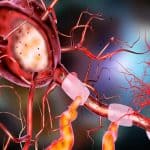A US government study aims to sequence the genomes of one million volunteers as part of its new ”All of Us” project. A genetic-counselling company hired by the National Institutes of Health (NIH) will work with participants to help them understand their results. Most of the participants are recruited from ethnic and socioeconomic groups that are typically under-represented in biomedical studies.
NIH announced the grant award of $4.6 million goes to firm Color for carrying out the 5-year study. It will counsel every study participant with a genetic variant that could have serious health implications. Color is supposed to prepare educational materials and offer telephone consultations to anyone who wishes to discuss their results with a counsellor.
“This is a really responsible and more equitable way of communicating the results of research to all participants,” Bartha Knoppers, the director of the Centre of Genomics and Policy at McGill University in Montreal, said for Nature. “They’re laying the foundations for building good bridges between the findings and the people.”
The “All of Us” study aims to enrol at least one million people. Participants will be able to provide them with health records, genomic data, blood and urine samples, even data records from personal activity trackers. An online database will store all the information and for external scientists to review with permission from the programme authority.
The study is focused on enrolling participants from ethnic and socio-economic groups that are typically under-represented in such research. A recent review in Cell found that 78% of people included in genomic studies of disease were of European descent. Conclusions from these genetic-testing studies could lead to interpretations of genetic variants that are inadequate for other populations.
Up to now, the “All of Us” study has enrolled 175,000 people, 50% are people of colour, and 80% are from groups that have been under-represented in biomedical research. Study researchers hope to provide participants with results in the first half of 2020.
To generate a long-term dataset, “All of Us” must retain participants for years. Only then precision medicine science can thrive. Precision medicine uses genomic, physiological and other data to custom treatments for individuals.
“It’s imperative to our mission that we return value to our participants, that we communicate back the results of [our] research,” said Stephanie Devaney, the deputy director of All of Us, in Bethesda, Maryland.
Amy McGuire, a bioethicist at Baylor College of Medicine in Houston, welcomes the project but warns of possible problems regarding knowledge transfer. “The devil is in the details”, she said.
Devaney and her colleagues need to make few important decisions about informing participants about their own genomes. The big question is how much and what to tell. At least one area is clear; a genetic counsellor will give people information on genetic variants that have actionable consequences for health. One example is the BRCA gene, whose mutations are associated with breast cancer.
Knowledge about other genetic variants can change over time, which present additional complications. The study participants have been told that scientists are constantly learning about new specific mutations. Brad Ozenberger, the genomics programme director at “All of Us”, said they are yet to decide how frequently to notify participants about such changes.
The effects of a given genetic variant can also depend on ethnicity. Certain genetic tests have been carried out only in white Europeans and it is unclear whether these are accurate for people of colour. All of Us and Color say they are exploring different ways to communicate facts to study participants.
“We’ve worked with a lot of diverse communities,” said Alicia Zhou, vice-president of research and scientific affairs at Color. “These include technology and manufacturing companies, railway workers in Alaska and residents of Trinidad and Tobago.”
Learn more about genetic counseling in the video below:
By Andreja Gregoric, MSc











